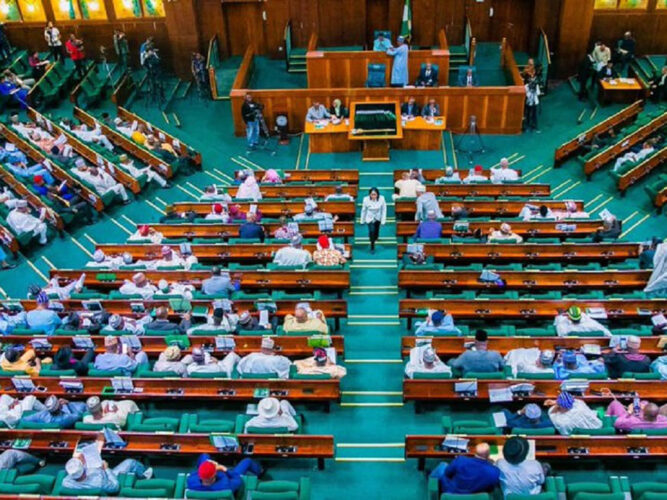Following a motion of urgent national importance sponsored by 88 members, the House of Representatives has called on the Federal Government to suspend the implementation of the Samoa Agreement until all controversial clauses are clearly addressed. Aliyu Madaki, a member of the House, highlighted the "gender equality" clause, describing it as a potential threat to the country's moral values.
The House has also directed its relevant committees to investigate the contentious aspects of the agreement. The Samoa Agreement, signed by the Federal Government with the European Union, has sparked controversy, with many believing it implies recognition of LGBTQ rights, contrary to Nigeria's anti-same-sex marriage law enacted in 2014 under then-President Goodluck Jonathan.
At a press conference on Saturday, Minister of Budget and Economic Planning, Atiku Bagudu, and Minister of Information, Mohammed Idris, asserted that Nigeria would not enter into any agreement that contradicts the constitution or the religious and cultural sensibilities of its diverse population. Bagudu stated that the agreement aims to enhance food security and promote inclusive economic development, among other crucial areas.
READ ALSO: NBA States: No Clause in SAMOA Agreement Mandates Nigeria to Accept LGBTQ Rights
The Samoa Agreement, signed last November by the European Union, its 27 member states, and 79 member states of the Organisation of African, Caribbean, and Pacific States (OACPS), aims to address emerging global challenges such as climate change, ocean governance, migration, health, peace, and security. Nigeria signed the agreement on June 28, 2024, but its details became public this week following Bagudu's disclosure.
A review by the European Parliament noted that the initial draft of the Samoa Agreement contained provisions for LGBTQ rights. However, due to reluctance from member states, the final agreement focused on "gender equality" instead. Article 2, clause 5 of the final agreement emphasizes the systematic promotion of a gender perspective and the mainstreaming of gender equality across all policies.









